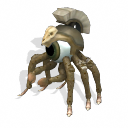Obviously we don’t eat products which are the result of non-human animal exploitation, but are you willing to:
- Buy “vegan” products made using the same manufacturing equipment? (Conveyer belts for example, resulting in near certain contamination).
- Buy vegan products made by the same company which produces non-vegan products? (Buying fries from McDonalds, resulting in more capital for McD’s exploitation).
- Buy vegan products from non-vegan grocery stores? (Pretty hard to avoid for most people, especially those on low income).
Curious to know where everyone stands on this.
If you think supply chains all the way to the end (or, the beginning, rather), even vegan staples are not fully “vegan” (think small animals killed during harvest, directly or indirectly). Keeping this in mind, Veganism (like most things in life, really) is not about perfection, but rather trying to be the least imperfect, which obviously leaves some room for interpretation. As for the specific examples in the OP, only the 2nd one is even worth consideration (I personally do not problematize ordering vegan food at McD’s). The other two are fully byproducts of living in a non-vegan world, and cannot be helped (directly).
Where to draw the line, when it comes down to it, is a very personal decision and depends on a lot of different circumstances. I think we can all agree that the furthest we can move away from animal exploitation is the “best”, but that isn’t always feasible.
It’s a lot like recycling and reducing waste. We don’t need a few people doing it perfectly, we need everyone doing it imperfectly. Just doing it better than now. Any degree you move toward the ideal is worth it, and not making it all the way should not be shameful.
This is spot on to what veganism is all about. Doing our best with the information we currently have and our current capabilities to ensure the littlest amount of exploration and harm are done unto others implicitly (and explicitly) through our actions. Nobody is perfect and perfect is the enemy of good.
I also firmly believe that this approach is way more likely to get people thinking about consumption in their lifestyles in a positive manner, vs the stereotype judgemental hippie that is often imagined.
Yeah, also good to have this sort of explanation in your back pocket for when someone inevitably asks you about insects and modern human slavery, gives them very little to rebuttal with when they initially thought it was going to be a gotcha moment
I don’t have unlimited time to research every purchase. I have been burned a few times when forgetting to read a label or missing an ingredient. So its something i am continually improving at.
Buying fries from McDonalds
McDonald’s fries aren’t vegan BTW. Even though they switched from using beef tallow for frying in the 90’s they still try to replicate the flavor using a seasoning that contains (among other things) hydrolyzed milk proteins.
Edit: Okay… as multiple people pointed out, that’s apparently not universal. For such a large chain I assumed that the US’s preparation guidelines were the same as global cooking guidelines, but apparently not.
They are vegan here in Australia and a few other countries I think. I have been bitten by that when traveling overseas and not realised they weren’t.
They are in some countries, like the UK
I guess it depends on location, but in Australia, the ingredients are:
- Potatoes
- Canola Oil (Acidity Regulator (330)),
- Dextrose Monohydrate (Preservative (220)),
- Mineral Salt (450),
- Antifoam (Non-ionic polyalkylene glycol),
- Preservative (223).
OR
- Potatoes,
- Vegetable Oil (Canola, Soybean, Cottonseed),
- Mineral Salt (450),
- Dextrose (from Mazie).
It also states:
FRIES are cooked in McDonald’s Vegetable Oil blend and may be cooked using the same equipment as products containing Gluten, Wheat, Milk, Soy.





